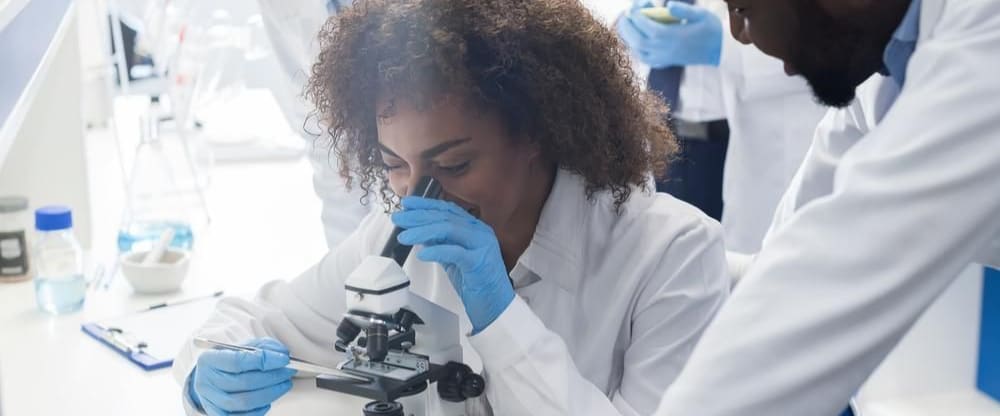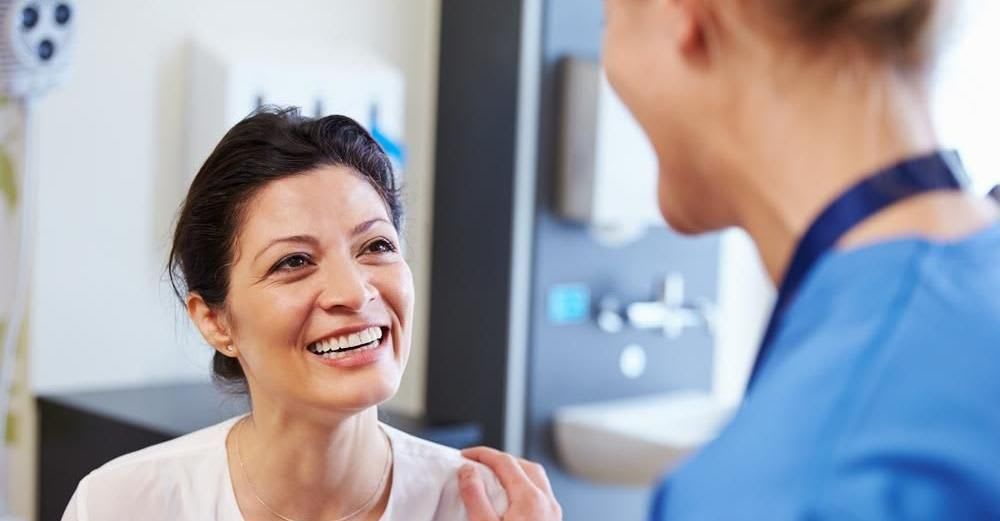Four Fields for Oncology Students
While there are many different ways to join the fight against cancer, several careers will uniquely position you to make a difference. What better occasion to take a closer look at them than on World Cancer Day? Read on for a closer look at four fields working to tackle cancer.
- Education
- International News

Just over 9.5 million people die every year from cancer. Experts project that this number will climb to 13 million by the year 2030. However, as many as 3.7 million lives could be saved every year through prevention, early detection and treatment of cancer. Observed every February 4th, World Cancer Day is an initiative of the Union for International Cancer Control (UICC) which aims to raise “public and political literacy and understanding around cancer” in order to spur action toward change.
While there are many different ways to join the fight against cancer, several careers will uniquely position you to make a difference. What better occasion to take a closer look at them than on World Cancer Day? Read on for a closer look at four fields working to tackle cancer.
1. Medicine
Oncologists are doctors who provide medical care for people diagnosed with cancer. This includes diagnosis and staging cancers, explaining treatment options, and helping patients manage the symptoms and side effects of cancer and cancer treatment -- all while providing quality and compassionate care.
There are many different kinds of oncologists, including medical oncologists, who treat cancer using medications like chemotherapy, targeted therapy, and immunotherapy; surgical oncologists, who remove tumors and nearby tissue; and radiation oncologists, who treat cancer using radiation therapy. Oncologists may also specialize in other areas, such as gynecology, pediatrics, and hematology.
Additionally, many different kinds of doctors can contribute to a cancer patient’s comprehensive treatment plan. This multidisciplinary approach may involve a variety of practitioners, including pathologists, radiologists, and specialists from other areas of medicine.
Primary care doctors, meanwhile, can also play a vital role in the primary prevention of cancer by encouraging patients to adopt lifestyle changes aimed at keeping cancer at bay, such as eating right and working out. They are also critical to early detection -- a key factor in increasing the chances of successful treatment.
2. Cancer research
While oncologists are on the frontlines of the fight against cancer, thousands of cancer researchers and scientists from diverse disciplines are working furiously behind the scenes to drive progress and improve the lives of people impacted by cancer. (Check out the NIH’s National Cancer Institute’s Profiles in Cancer Research for several examples.)
In an interview with Lifehacker, medical oncology fellow and cancer researcher Dr. Tina Cascone, MD, PhD, shared her reasons for focusing on research. “During my last year of medical school, I became actively involved in research studies designed to identify the factors that determine how patients with some types of cancers in the chest respond to chemotherapies. It was at this time that I began to see that results from research have the potential to guide therapy and possibly impact patient lives.”
3. Political science
Political science probably isn’t the first field of study that comes to mind when you think of cancer. However, a background in this field can prepare you to work for an NGO or other organization as an advocate for cancer research. According to a report from the King Hussein Cancer Foundation, NGOs are uniquely positioned to influence policy because they “have a big voice and are persistent.”
But government officials are also doing their part, and with good reason. According to the book, The Politics of Cancer: Malignant Indifference, “the government is intrinsically tied to cancer research efforts” and “major political actors make cancer policy and are influenced in their decision making by political, social, scientific, and economic variables.”
Consider the UK’s Britain Against Cancer Conference (BAC), for example. This annual gathering brings together NHS professionals, patients, carers, third sector professionals, policy experts, and politicians to address the most pressing issues in cancer policy.
4. Communication
Cancer is a public health crisis, and yet critical interventions are often absent where they are most needed. Communications can bridge the gap. Research published in the International Journal of Gynecology & Obstetrics proposes, “Clear and sustained communication, robust advocacy, and strategic partnerships are needed to inspire national governments and international bodies to action, including identifying and allocating sustainable program resources.”
The takeaway? Organizations working to raise awareness about cancer need people with communications expertise to spread the word. A degree in communication can help you devise effective strategies for informing and influencing individual and community decisions pertaining to cancer prevention and health promotion campaigns.
One last thing to keep in mind? Even if you don’t have a degree in one of these four fields or you have limited time, you can still join the effort. Learn more about student options for taking action against cancer here.

Joanna Hughes
Author
Joanna worked in higher education administration for many years at a leading research institution before becoming a full-time freelance writer. She lives in the beautiful White Mountains region of New Hampshire with her family.
Find a program in these categories
Read related articles

What You Should Know If You Want To Practice Medicine Abroad

Five Countries to Choose for Nursing Degrees
